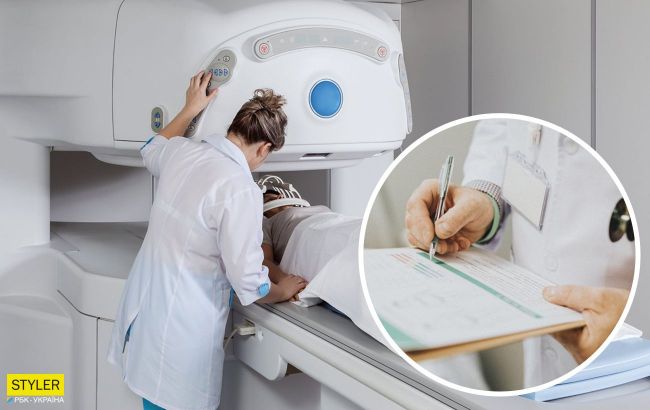10 cancer symptoms women should not ignore
 RBC-Ukraine collage
RBC-Ukraine collage
Just like men, women must remain vigilant about any changes in their bodies that could signal the possibility of cancer. However, some symptoms, especially if persistent, can be particularly worrisome, according to the Health website and the Ministry of Health of Ukraine.
Symptoms that could indicate oncology
Changes in the breasts
Discovering lumps or changes in the breasts, including changes in shape, size, texture, or color of the skin, should raise concerns. Do not delay in addressing these changes and seek medical attention urgently!
Unusual vaginal discharge
This may include bloody discharge or discharge with an unusual odor outside the menstrual cycle.
Changes in urination
This may include more frequent or less frequent urination, pain, or changes in the color of urine. Seek medical attention if you notice any of that.
Persistent fatigue and weakness
This may be a nonspecific symptom, but if it persists for a long time and is not explained by other reasons, it may warrant a visit to the doctor.
Loss of appetite or unexplained weight loss
Especially if it occurs without changes in diet or lifestyle.
Unusual skin changes
If you notice rashes, hair, or nails that do not disappear or change shape anywhere on your body, it's better to consult with a doctor.
Persistent cough or changes in voice
If you have a cough that persists for a long time or is accompanied by blood or pain, seek medical attention urgently!
Changes in digestion
For instance, swallowing problems, a constant feeling of stomach distension, a feeling of fullness, or pain when eating.
Unexplained pains or discomfort in any part of the body
Especially if they persist for a long time or worsen over time. For instance, if you feel constant pain in a part of your body that has never bothered you before.
Changes in bowel movements
This may include changes in stool consistency, the presence of blood in the stool, or other unusual symptoms.
It is important to remember that these symptoms may be associated with various conditions and do not necessarily indicate cancer. However, any unusual symptoms, especially if they persist for a long time, should be discussed with a doctor to determine the causes and next steps.
This material is for informational purposes only and should not be used for medical diagnosis or self-treatment. Our goal is to provide readers with accurate information about symptoms, causes, and methods of detecting diseases. RBС-Ukraine is not responsible for any diagnoses that readers may make based on materials from the resource. We do not recommend self-treatment and advise consulting a doctor in case of any health concerns.

